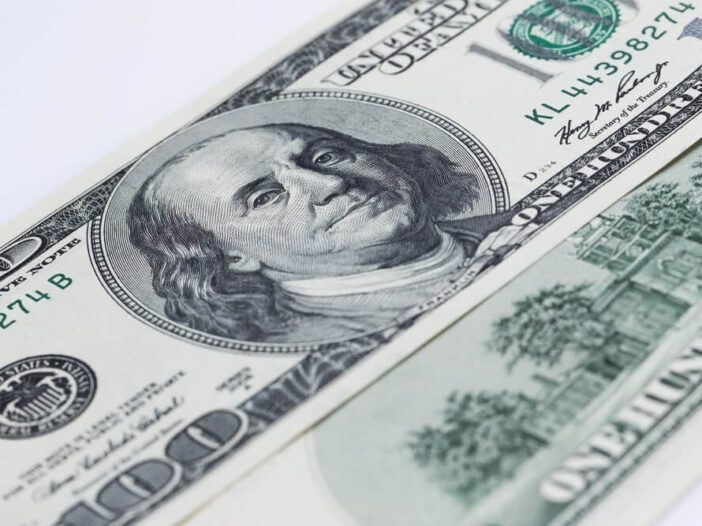‘Our swimming pool is so hot you can’t get in it’, says our neighbour, Pierre. ‘I’ve never seen it like that.’
Europe is suffering another heat wave.
The only two comparable heat waves in recent history came in 2003 and 1947. We were here for the 2003 event. We recall that the French held their heads in shame afterwards. Because 15,000 elderly people died, many of whom probably would have been saved if caring relatives had made sure they had enough water to drink…and perhaps a cooling bath.
Here in the countryside, no one has air conditioning. But you don’t really need it. You just have to learn to live with a week or two of intense heat.
First, you close your shutters during the morning. And close the windows. And the curtains. Thus, keeping the interior of the house relatively cool until evening.
Then, in the middle of the day, when the heat is at its height, you go down to the river and jump in. The river water, generally protected from the Sun by overhanging trees, is cool and refreshing.
Back in 2003, the children’s grandmother would accompany them to the river and sit on the bank reading as they frolicked in the water. And one day…
More to the story
We interrupt that story to bring this news: The Inflation Reduction Act has not even passed yet, but it’s already producing positive results. Associated Press: ‘US inflation slows from a 40-year peak but remains high’:
‘Falling gas prices gave Americans a slight break from the pain of high inflation last month, though overall price increases slowed only modestly from the four-decade high that was reached in June.
‘Consumer prices jumped 8.5% in July compared with a year earlier, the government said Wednesday, down from a 9.1% year-over-year jump in June. On a monthly basis, prices were unchanged from June to July, the smallest such rise in more than two years.’
Does this mean the worst is over? Is that all there was to it?
Oh, dear reader, don’t be silly. There’s always ‘more to it’.
Fuel costs came down. Reuters reported last week that ‘US gasoline prices fall below $4 for the first time since March’.
But while gas went down, food prices rose by more than 10%…the most since 1979. And rents are still going up, so much that a group of rent activists has asked the feds to declare yet another emergency! Productivity is down too…which means there will be fewer goods and services to buy. And labour costs are up, which means they’ll be more expensive. But the recession will reduce demand, so prices will fall!
What to make of it?
Only in Hell does the heat last forever. Everywhere else, it comes and goes. High prices bring lower prices…boom follows bust…and after a credit-fuelled bubble comes a debt-driven depression.
With yesterday’s bump up, the Nasdaq is now 20% above its recent low…and stocks all over the globe are rallying.
Meanwhile, down by the water…
A sight to behold
‘I couldn’t believe it’, said the 85-year-old grandmother from Maryland, after returning from the river.
‘A very handsome man came down to the river near where I was sitting. He looked like something you would see on the cover of a romance novel, perhaps named Fabian, with long, dark hair. And then, he took off all his clothes. I was so shocked, I couldn’t take my eyes off of him. It must have looked as though I was staring; because I was. And then, he got into the river.’
‘I couldn’t wait ‘til he came out again’, she added with a twinkle in her eye.
Unlike the heat in Maryland, here the nights are cool. So, after the sun sets, you open the curtains, the windows, and the shutters; the night air can cool down your house. It’s rare that it is so hot at night that it’s uncomfortable.
In Paris, however, it’s a different story. The pavement and concrete heat up during the day. It’s hot at night too…as the masonry gives up its heat slowly.
‘Global warming’ says the press. We need to do something about it.
Should we buy an electric car? Should we pay more for solar powered electricity…eat only locally grown produce…turn the thermostat down in the winter and up in the summer?
If we do these things, will it be cooler in the summer? Will Pierre be able to enjoy his pool again?
That’s the hypothesis…!
‘Sudden and violent pains’
But wait. What about the Great Heat of 1757? Yes, there were heat waves even before humans discovered fossil fuels. On 14 July 1757, Paris nearly hit 100 degrees Fahrenheit. That was the hottest the city had been since 1659. And before that, there was the heat wave of 1540.
How reliable the weather records from so long ago are…we don’t know. But hot weather in the summer is nothing new. In July 1757, Horace Walpole went for a walk in his garden and wrote: ‘I thought I should have died of it.’
Dr John Huxham noticed the effects on the body, writing that the heat ‘caused haemorrhages from several parts of the body’, and ‘sudden and violent pains of the head, and vertigo, profuse sweats, great debility and oppression of the spirits’.
‘There were putrid fevers in great abundance’, he added.
But finally, after so many generations, humans are getting control of things. The Fed has the upper hand against inflation. And the feds will soon be setting the planet’s thermostat to the desired temperature.
Yes, with carrot and stick, the feds will drive the economy toward lower carbon emissions…leading to cooler summers.
And if that actually happens, it will be one for the record books.
No other grand program, run by the government, has ever achieved anything but misery. Not the Crusades. Not the war to ‘Make the World Safe for Democracy’. Not Prohibition. Not the Germans’ quest for ‘living room’ nor the Soviets’ promise to create a ‘paradise for the working class’. And not the US’s ‘War on Terror’. No ‘Great Society’ emerged from LBJ’s meddles. And after Trump’s claims to make America ‘Great Again’, the country is worse than ever.
Instead, every promise is broken. And every ambitious scheme ends in failure.
We doubt the Great Transition will be an exception.
Regards,
 |
Bill Bonner,
For The Daily Reckoning Australia

